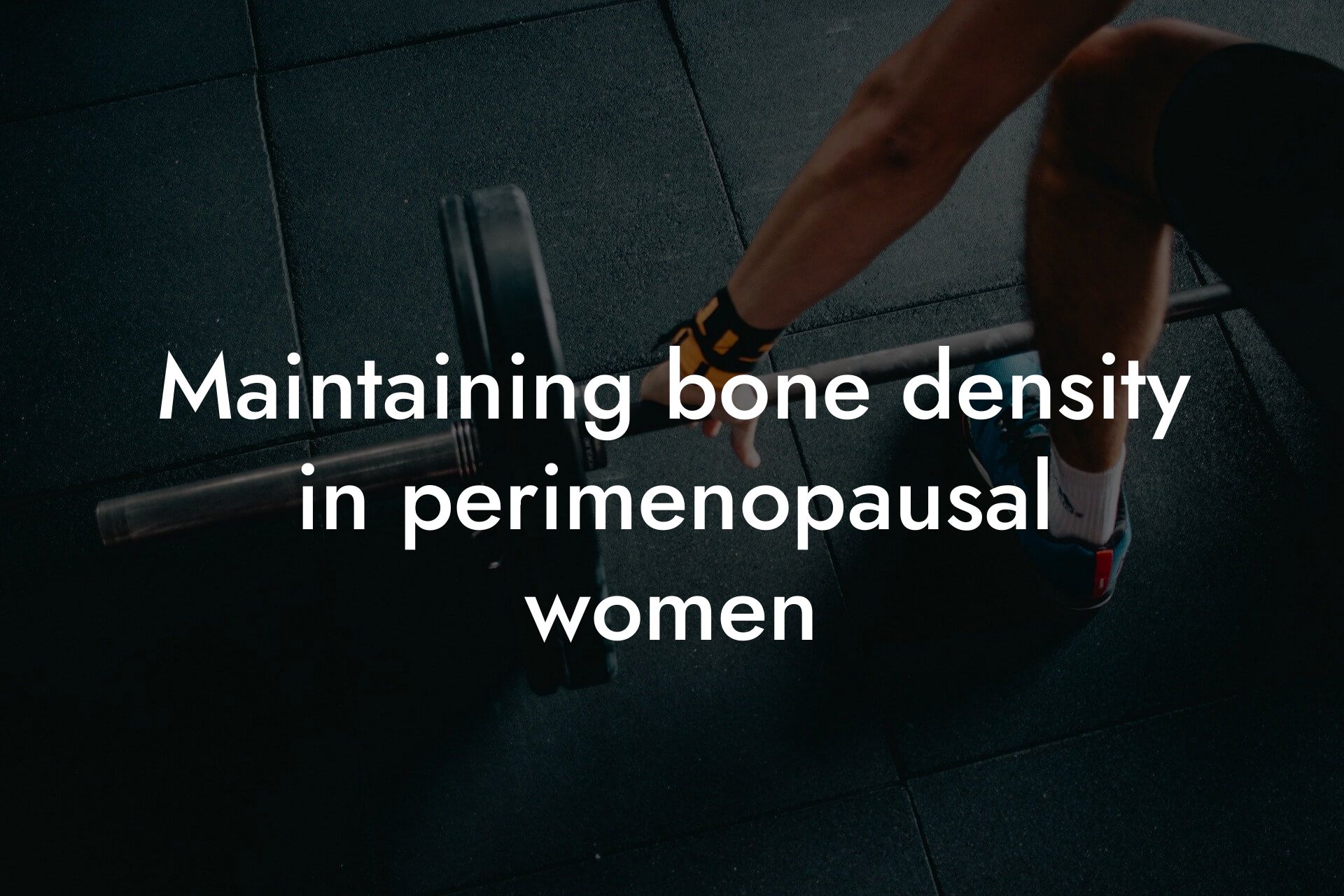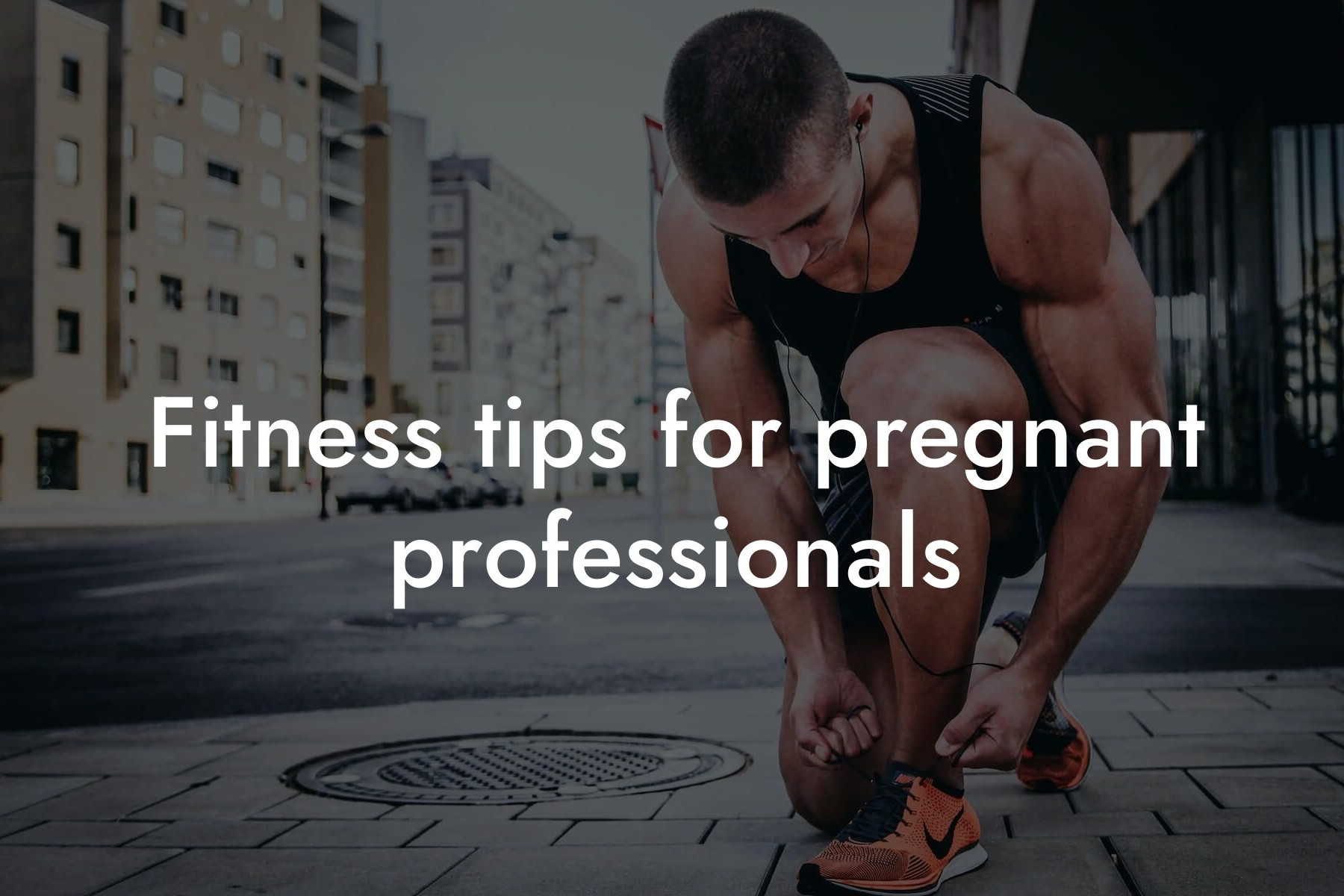As a high-earning professional, you understand the importance of maintaining a healthy and fit physique. Not only does it boost your confidence and energy levels, but it also enhances your overall well-being and productivity. However, when you're working in a high-stress job, finding the time and motivation to prioritize fitness can be a significant challenge. In this article, we'll explore the unique challenges of maintaining fitness in high-stress jobs and provide you with practical tips and strategies to overcome them.
Table of Contents
The Impact of Stress on Fitness
Chronic stress can have a devastating impact on your physical health, including your fitness levels. When you're under stress, your body produces cortisol, a hormone that helps you respond to threats. However, elevated cortisol levels can lead to increased fat storage, particularly around the midsection. Additionally, stress can disrupt your sleep patterns, making it difficult to get the restful sleep you need to recover from your workouts.
Furthermore, stress can also affect your mental health, leading to anxiety, depression, and burnout. When you're feeling overwhelmed and exhausted, it's easy to let your fitness goals fall by the wayside. However, neglecting your physical health can exacerbate the negative effects of stress, creating a vicious cycle that's difficult to break.
The Challenges of Finding Time
One of the biggest challenges of maintaining fitness in a high-stress job is finding the time to do so. Long hours, tight deadlines, and endless meetings can leave you feeling drained and exhausted, making it difficult to muster the energy to hit the gym or cook a healthy meal. Additionally, the pressure to constantly be "on" and responsive to work demands can make it challenging to prioritize self-care and fitness.
Many high-earning professionals sacrifice their personal time and energy to meet the demands of their job, leaving them with little time or motivation to focus on their physical health. However, neglecting your fitness can have long-term consequences, including decreased productivity, increased risk of chronic diseases, and a lower quality of life.
The Importance of Prioritizing Self-Care
In high-stress jobs, it's essential to prioritize self-care and make time for activities that nourish your mind, body, and spirit. This includes exercise, meditation, and relaxation techniques, as well as spending time with loved ones and engaging in hobbies and activities that bring you joy.
By prioritizing self-care, you can reduce stress, increase energy levels, and improve your overall well-being. This, in turn, can help you perform better in your job, make more informed decisions, and maintain a healthy work-life balance.
Creating a Fitness Plan That Works for You
When you're working in a high-stress job, it's essential to create a fitness plan that works for you, rather than against you. This means finding exercises and activities that you enjoy, and that can be adapted to your busy schedule.
For example, you might consider high-intensity interval training (HIIT) workouts that can be completed in under 30 minutes, or bodyweight exercises that can be done in the comfort of your own home. You might also consider working with a personal trainer or fitness coach who can help you develop a customized fitness plan that meets your unique needs and goals.
The Role of Nutrition in Fitness
Nutrition plays a critical role in fitness, particularly in high-stress jobs. When you're under stress, your body needs nutrient-dense foods that can help support your immune system, reduce inflammation, and provide sustained energy.
This means focusing on whole, unprocessed foods like fruits, vegetables, lean proteins, and whole grains, and avoiding sugary snacks and processed meals that can exacerbate stress and fatigue. You might also consider working with a registered dietitian or nutritionist who can help you develop a personalized nutrition plan that meets your unique needs and goals.
The Benefits of DEXA Scanning
At Tano Performance Group, we understand the importance of tracking your progress and monitoring your body composition. That's why we offer DEXA scanning, a non-invasive, pain-free test that provides a detailed analysis of your body fat percentage, lean muscle mass, bone density, and other key health metrics.
DEXA scanning can help you identify areas for improvement, track your progress over time, and make informed decisions about your fitness and nutrition plan. By regularly monitoring your body composition, you can stay motivated, focused, and committed to your fitness goals, even in the midst of a high-stress job.
Overcoming Common Excuses
When you're working in a high-stress job, it's easy to come up with excuses for not prioritizing your fitness. You might tell yourself that you're too busy, too tired, or too stressed to worry about exercise and nutrition. However, these excuses can hold you back from achieving your goals and living a healthy, balanced life.
Instead, try to reframe your thinking and focus on the benefits of prioritizing your fitness. Remember that exercise can help reduce stress, increase energy levels, and improve your overall well-being. By making fitness a priority, you can perform better in your job, build stronger relationships, and maintain a healthy work-life balance.
Maintaining fitness in a high-stress job requires commitment, discipline, and creativity. By prioritizing self-care, creating a fitness plan that works for you, and focusing on nutrition and DEXA scanning, you can overcome the unique challenges of high-stress jobs and achieve your fitness goals. Remember to be patient, kind, and compassionate with yourself, and don't be afraid to seek support and guidance from professionals who can help you along the way.
At Tano Performance Group, we're committed to helping high-earning professionals like you achieve their fitness goals and maintain a healthy, balanced life. Contact us today to learn more about our DEXA scanning services and how we can support you on your fitness journey.
Frequently Asked Questions
What are high-stress jobs, and how do they impact fitness?
High-stress jobs are professions that involve intense mental, emotional, or physical demands, leading to chronic stress. Examples include careers in finance, law, medicine, and entrepreneurship. Chronic stress can disrupt hormones, metabolism, and sleep patterns, making it challenging to maintain fitness and overall well-being.
How does stress affect my body composition?
Chronic stress triggers the release of cortisol, a hormone that promotes fat storage, particularly in the midsection. This can lead to weight gain, increased body fat percentage, and a decrease in muscle mass. Additionally, stress can cause inflammation, which can further exacerbate body composition issues.
What are the most common fitness challenges faced by high-stress professionals?
Common fitness challenges include finding time to exercise, managing energy levels, and coping with stress-related fatigue. Many high-stress professionals also struggle with poor sleep quality, which can negatively impact physical performance and recovery.
How can I prioritize fitness when my job demands long hours?
Start by scheduling exercise into your daily planner, just as you would any other important task. Aim for at least 30 minutes of moderate-intensity exercise, such as brisk walking or yoga, during your lunch break or immediately after work. Even small increments of physical activity can make a significant difference in your overall fitness.
What are some effective stress-reducing exercises for busy professionals?
High-intensity interval training (HIIT), yoga, and Pilates are excellent options for reducing stress and improving fitness. These exercises can be adapted to fit your schedule and can be done in as little as 20-30 minutes per session.
How can I maintain a healthy diet when I'm always on-the-go?
Plan your meals in advance, and consider meal prep or healthy delivery services. Focus on whole, nutrient-dense foods like fruits, vegetables, lean proteins, and whole grains. Avoid sugary snacks and caffeine, which can exacerbate energy crashes and mood swings.
What are some healthy snack options for busy professionals?
Nuts, seeds, dried fruits, and energy bars made with wholesome ingredients are all convenient and healthy snack options. You can also prepare your own snacks, such as trail mix or energy balls, to keep at your desk or in your bag.
How can I get enough sleep when I have a demanding job?
Establish a consistent sleep schedule, even on weekends. Create a relaxing bedtime routine, such as reading or meditation, to signal to your body that it's time to sleep. Aim for 7-9 hours of sleep each night, and consider power naps during the day if needed.
What are some strategies for managing stress and anxiety in high-stress jobs?
Practice mindfulness techniques, such as deep breathing or meditation, to reduce stress and anxiety. Take regular breaks throughout the day to stretch, move your body, and clear your mind. Prioritize self-care activities, such as exercise, reading, or spending time with loved ones, to help mitigate the effects of stress.
How can I stay motivated to exercise when I'm feeling overwhelmed?
Find an exercise buddy or accountability partner to help keep you motivated. Set specific, achievable fitness goals, and celebrate your progress along the way. Reward yourself for reaching milestones, and remind yourself of the benefits of exercise, such as improved mood and increased energy.
What are some common mistakes high-stress professionals make when it comes to fitness?
Common mistakes include neglecting self-care, overtraining, and relying on quick fixes or fad diets. It's essential to prioritize consistency, patience, and sustainable lifestyle changes to achieve long-term fitness success.
How can I fit exercise into my busy travel schedule?
Research local gyms or fitness studios near your destination, and schedule workouts into your travel itinerary. Consider packing a portable workout kit, such as resistance bands or a yoga mat, to stay active in your hotel room. Even a short walk or stretch can make a difference in maintaining your fitness level.
What are some effective ways to manage fatigue and increase energy levels?
Prioritize sleep, exercise, and nutrition to help manage fatigue. Consider incorporating adaptogenic herbs, such as ashwagandha or rhodiola, into your daily routine. Stay hydrated by drinking plenty of water throughout the day, and limit caffeine and sugar intake.
How can I measure my progress and stay accountable?
Track your workouts, nutrition, and sleep patterns using a fitness tracker, journal, or mobile app. Set specific, measurable goals, and regularly assess your progress. Share your goals and progress with a friend or accountability partner to increase motivation and support.
What are some common myths about fitness and high-stress jobs?
Common myths include the idea that you need to spend hours at the gym to see results or that exercise will exacerbate stress. In reality, even small amounts of exercise can have a significant impact on fitness and stress levels, and it's essential to find a balance that works for you.
How can I prioritize self-care and avoid burnout?
Recognize the signs of burnout, such as chronic fatigue, irritability, and decreased motivation. Prioritize activities that bring you joy and relaxation, such as reading, spending time with loved ones, or engaging in hobbies. Set boundaries and learn to say "no" to non-essential tasks that drain your energy.
What are some effective ways to reduce inflammation and improve overall health?
Incorporate anti-inflammatory foods, such as omega-3 rich fish, turmeric, and ginger, into your diet. Stay hydrated, exercise regularly, and manage stress levels to reduce inflammation. Consider incorporating supplements, such as probiotics or fish oil, into your daily routine.
How can I maintain a healthy work-life balance?
Set clear boundaries between your work and personal life, and prioritize activities that bring you joy and fulfillment outside of work. Learn to delegate tasks, take regular breaks, and practice time management skills to reduce work-related stress and increase productivity.
What are some resources available to high-stress professionals for fitness and wellness support?
Consider working with a personal trainer, nutritionist, or wellness coach who specializes in high-stress professions. Utilize online resources, such as fitness apps, blogs, and support groups, to stay motivated and connected with like-minded individuals.
How can I stay consistent with my fitness routine during periods of high stress?
Focus on small, achievable goals, and celebrate your progress along the way. Find an accountability partner or join a fitness community to stay motivated. Prioritize self-care and stress management techniques, such as meditation or deep breathing, to help maintain your fitness routine.
What are some common misconceptions about fitness and high-stress jobs?
Common misconceptions include the idea that fitness is only for young people or that it's impossible to prioritize fitness in a high-stress job. In reality, fitness is essential for overall well-being, and small changes can make a significant impact, regardless of age or profession.
How can I make fitness a sustainable part of my lifestyle?
Focus on progress, not perfection. Find activities that bring you joy and make you feel good, and incorporate them into your daily routine. Prioritize consistency, patience, and self-care to make fitness a sustainable part of your lifestyle.
Here are some related articles you might love...
- Body composition considerations for vegetarian athletes
- Maintaining bone density in perimenopausal women
- Fitness tips for pregnant professionals
- Tailored fitness programs for executives
- How cultural differences impact body composition goals
- How to manage body composition after childbirth
- Fitness and nutrition strategies for shift workers
- Body composition strategies for women in leadership
- Fitness programs for older professionals
Zak Faulkner
Zak Faulkner is a leading authority in the realm of physical health and body composition analysis, with over 15 years of experience helping professionals optimise their fitness and well-being. As one the experts behind Tano Performance Group, Zak has dedicated his career to providing in-depth, science-backed insights that empower clients to elevate their physical performance and overall health.
With extensive knowledge of DEXA technology, Zak specializes in delivering comprehensive body assessments that offer precise data on body fat, muscle mass, bone density, and overall physique. His expertise enables individuals to make informed decisions and achieve their fitness goals with accuracy and confidence. Zak’s approach is rooted in a deep understanding of human physiology, combined with a passion for helping clients unlock their full potential through personalised strategies.
Over the years, Zak has earned a reputation for his commitment to excellence, precision, and client-focused service. His guidance is trusted by top professionals who demand the best when it comes to their health. Whether advising on fitness programs, nutritional strategies, or long-term wellness plans, Zak Faulkner’s insights are a valuable resource for anyone serious about taking their health and fitness to the next level.
At Tano Performance Group, Zak continues to lead our Content Team revolutionising how professionals approach their physical health, offering unparalleled expertise that drives real results.




